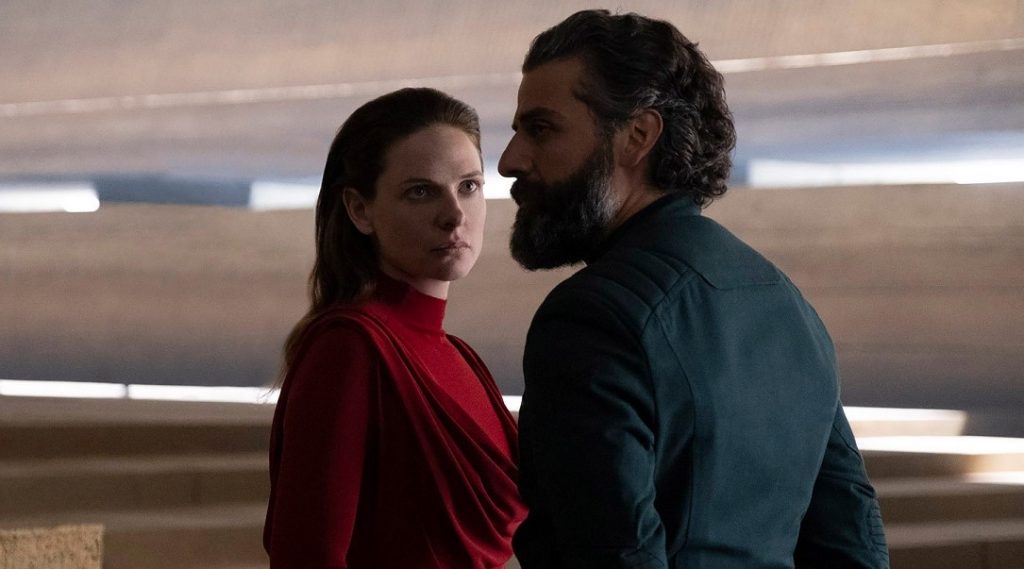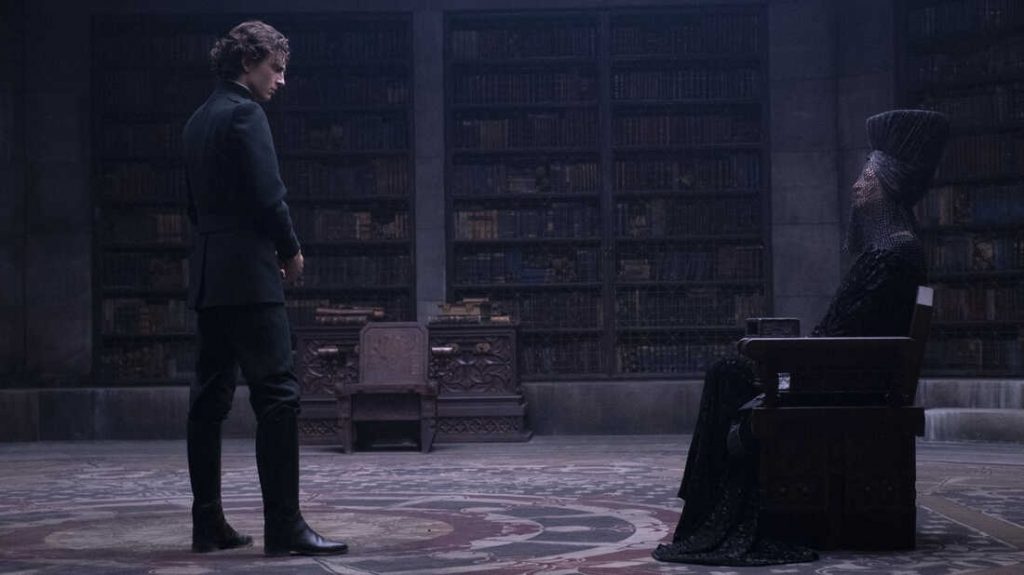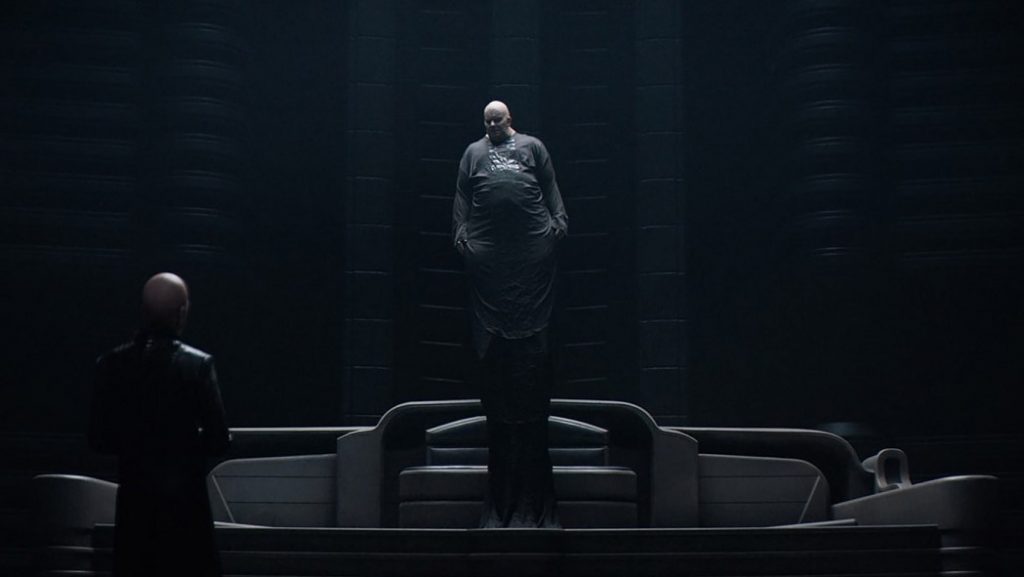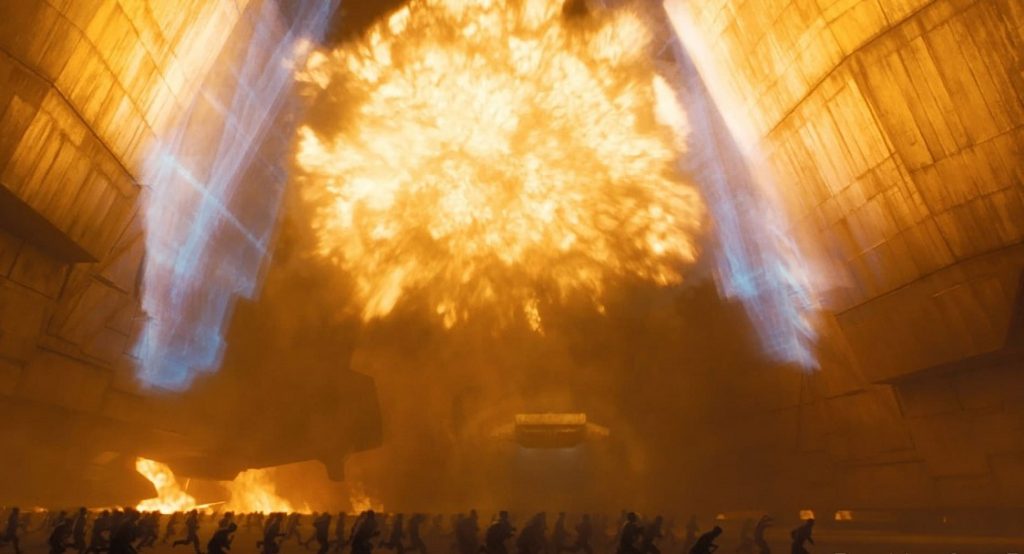
This film debuts in movie theaters and on HBO Max October 22nd.
Frank Herbert’s science-fiction novel Dune was published in 1965 and became one of its genre’s most popular tales. Despite its lasting success, filmmakers have struggled for decades in their attempts to adapt the dense and detailed story to the big screen. A 1984 David Lynch effort featured striking visuals, but its story suffered from studio tinkering that resulted in a choppy narrative. Remarkably, the latest adaptation is a revelation. It’s about as well-mounted as one could possibly hope for, providing more detail that was missing from the previous movie. If audiences can get past one minor issue with this feature, they are certain to be taken on an incredible ride.

Set in the year 10191, the story begins with the unseen Emperor of the Known Universe assigning command of desert world called Arrakis (also known as Dune) to the leader of planet Caladan, Duke Leto Atreides (Oscar Isaac). This sandy sphere possesses the “Spice” which is the most valuable substance in existence. It can extend life and enable interstellar-travel across great distances. Mining the drug is a difficult task, with dangerous sandworms in the deserts and indigenous Fremen ready to fight their planet’s occupiers. Leto arrives on Dune with wife Lady Jessica (Rebecca Ferguson) and son Paul (Timothée Chalamet). Paul shows great promise as a future leader, as well as strange extra-sensory abilities that include visions of the future. Despite his gifts, the new arrivals don’t realize that they have been set up to fail. The mysterious Emperor actually wants Atreides enemy House Harkonnen to seize power and slay the family. Baron Harkonnen (Stellan Skarsgård) and his nephew Beast Rabban (Dave Bautista) attempt to make good on the arrangement, leaving all in deadly peril.

There are even more characters and subplots to the story than listed above. This includes Paul’s relationships with trainers Duncan Idaho (Jason Mamoa) and Gurney Halleck (Josh Brolin), as well as an eerie interaction with the Bene Gesserit Reverend Mother (Charlotte Rampling), a powerful figure with frightening psychic abilities. It is easy to see why so many have referred to the book as unfilmable, simply because of the volume of supporting characters. There is a lot of information to establish and the movie doesn’t rush haphazardly, instead identifying the different characters and their motivations in a clear and understandable manner.

In addition to the well-defined minor roles, we’re also given more time with protagonist Paul. Additional scenes are spent with the young man to understand his rationale and his doubts about his abilities. Labeled by some as a potential savior of the universe, Chalamet effectively communicates his feelings of uncertainty, often treating his unusual talents as more of a curse than a blessing. These moments make the character more relatable and the approach benefits the movie greatly. And when war breaks out and lives are lost, it has far more of an impact on the viewer.
Of course, the feature also benefits from tremendous technical work, including the production design, costumes and cinematography. This movie looks like an epic and has awe-inspiring images, with sweeping and uniquely lensed desert vistas and impressive scenes involving giant sandworms and explosive compound raids. It all looks remarkable. Naturally, the cold-hearted and cruel Harkonnen leaders also make a notable and intimidating impression, adding to the tension as they coolly wipe out their foes.

So, what is the downside to a movie that takes time to develop the world and characters living within it? Well, with a bulky and detailed story, it’s a process that requires a great deal of screentime. Too much, in fact, for just one feature. Alas, viewers should take note that this adaptation only covers the first half of the book. This means that the film ends in a muted manner, just as the drama is beginning to really gear up. It doesn’t have a big climax depicting a presumably jaw-dropping final fight between all the parties who have been so carefully introduced.

Still, what is onscreen is largely enthralling and this reviewer is anxious to see how it all plays out. And if this title ends up being a success, we should be in for a truly spectacular finale. Personally, I don’t think this story could be effectively told in two hours, so breaking the novel into two chapters is the best route to properly adapting the material. In the end, viewers may not get the whole Dune experience in this single film, but everything that is present is top-notch in every respect.


